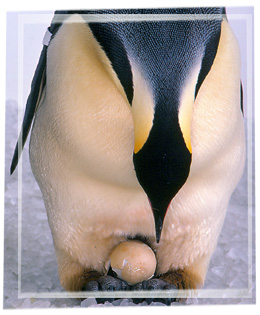Did you see the Albert Brooks movie Lost in America, circa 1985? Here is the story line:
David and Linda Howard are successful yuppies from LA. When he gets a job disappointment, David convinces Linda that they should quit their jobs, liquidate their assets, and emulate the movie Easy Rider, spending the rest of their lives travelling around America…in a Winnebago! (This is a kind of large, luxurious mobile home which suits a 1980’s yuppie more than the counterculture dropout approach of Easy Rider.) His idealized, unrealistic plans soon begin to go spectacularly wrong. Written by Reid Gagle
Yes, yuppies, Winnebagoes, it was from a slice of time alright. The poignant thing about this movie, however, is that early into David and Linda’s big trip, they stop off in Las Vegas for a second honeymoon where, while David sleeps peacefully in their heart-shaped bed, the generally hyper-responsible Linda gambles away their entire nest egg of money. They spend the rest of the movie trying to recover from this gambling spree until they finally return to the working world at the end of the movie, having gained valuable insights into themselves. But there is a scene, from which comes a memorable quote, where Albert Brooks is giving his wife a patronizing lecture about losing the nest egg. ““Its a very sacred thing, the nest egg. And if you had understood the ‘nest egg principle’, as we will now call it, in the first of many lectures that you will have to get. Because if we are ever to acquire another nest egg, we both have to understand what it means...” And I agree that nest eggs are sacred.
This week has been terribly hard work. First, we had to confront the unbearable sadness of the violation of our campus where the majority of the damage was done to our youngest, most vulnerable children. Next, we had to move anything usable from the charred classrooms, put on our rubber gloves and wash soot off of the salvaged school supplies, which was tedious and irritating. Finally, we had to confront our fears about any possibility that something threatening could happen to us again and whether or not the Tunisian government would come to our aid. Our school community is spread across a continuum of healing, ranging from I want to hop on a plane in the next 5 minutes and never look back at Tunis to I am ready to have students come back to school and get back to normal. We have had heart-wrenching group discussions and cried buckets of tears. But now I think it is time for that stage to end.
In one week, a scab has formed over the wound. It hasn’t healed, but we’re learning to live with it. I am thinking of our collective healing as our nest egg. What do we have invested in our egg? Our previous relationships with each other, our respect for one another’s professionalism, the side-by-side work we’ve done this week to clean up our school and get resorted, the tears and transparency of our sharing, our tentative willingness to trust our host government again. It’s a precious little bundle at the moment, but it’s our most valuable asset. We have coddled together this embryonic package of trust and vision and downright love and I think that at this point the tending of our nest egg should be one of our highest values.
How do we nurture our egg? I have been thinking about some good solid Buddhist principles. Ever heard of the Eightfold Path? It is a practical self-checklist to gauge how positively you are responding to the disappointments of life. Here are the points in a very simple form:
| 1. Right View | Wisdom | |
| 2. Right Intention | ||
| 3. Right Speech | Ethical Conduct | |
| 4. Right Action | ||
| 5. Right Livelihood | ||
| 6. Right Effort | Mental Development | |
| 7. Right Mindfulness | ||
| 8. Right Concentration |
http://www.thebigview.com/buddhism/eightfoldpath.html
Sometimes, most times, healing from something that is truly hurtful requires a decision to do so. One can remain wounded for an indefinite amount of time, for a lifetime even, because he isn’t willing to stop being hurt. Families are where you have probably had to practice this at some point in your life. Families can hurt each other, intentionally and otherwise. I have found that healing or not comes down to weighing the offense against the consequence of alienation from the family member. I, personally, have never been able to carry through with not having that person in my life for the rest of my life. I simply could not maintain it and wouldn’t want to. The alternative then was to stop thinking about and rehashing the offense, stop bracing against a possible repeat of the offense, get busy with positive living and thinking and let time heal. And it turns out that it does.
